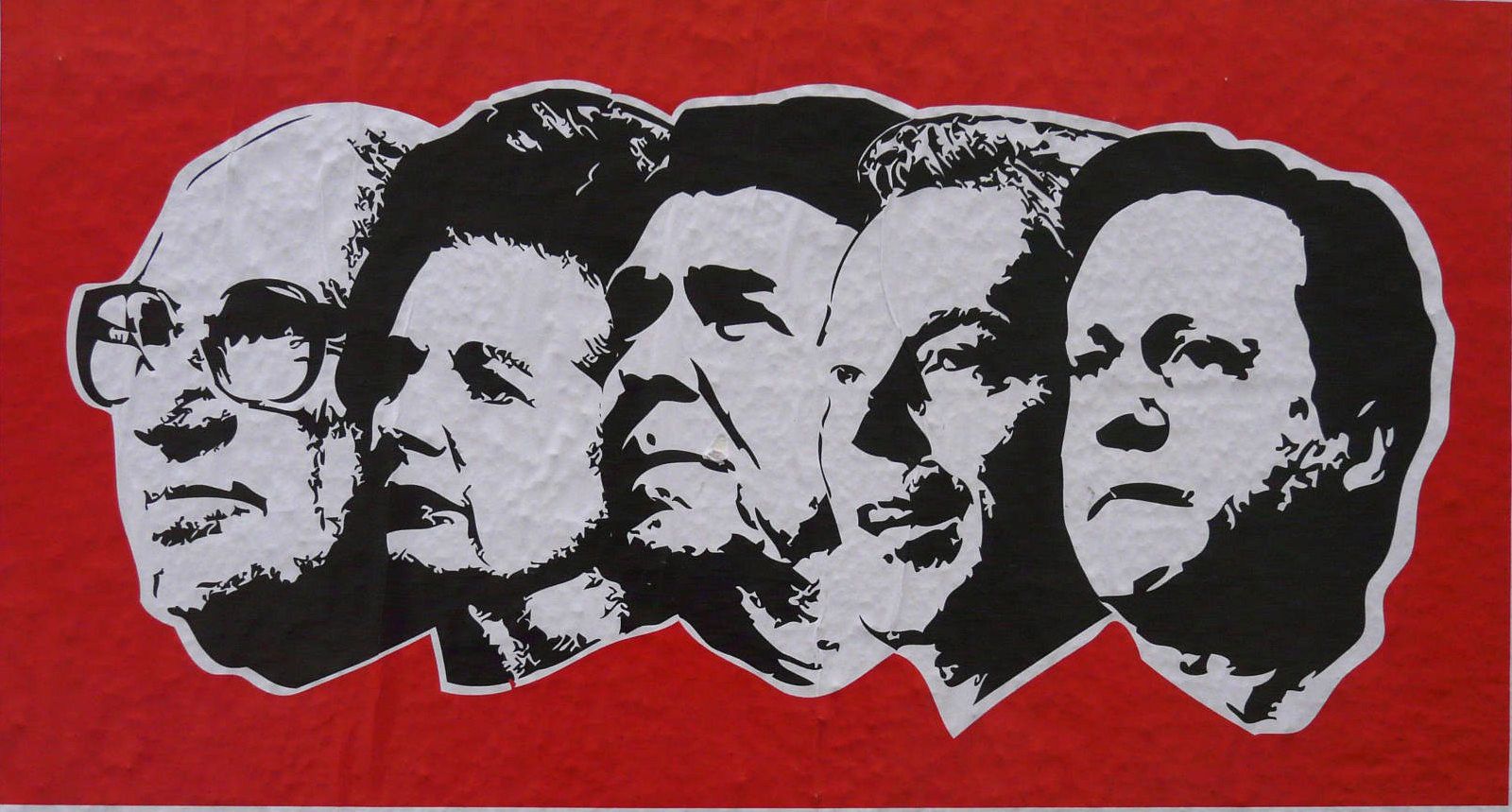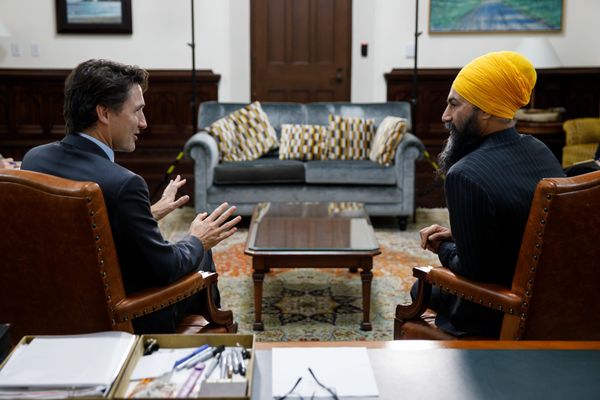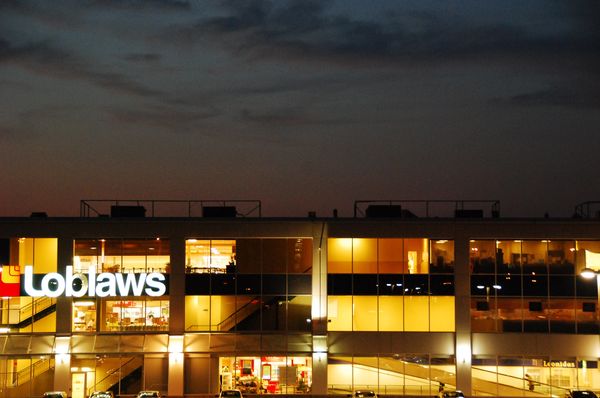Amidst the economic fallout from the pandemic, figures from liberal and left circles have complained of “authoritarian governance” in Canada. They’ve cited Alberta’s double punch of anti-protest and anti-labour bills, Ontario’s sweeping changes to government power, numerous austerity budgets and outstanding incidents of state violence.
Their concerns are understandable, as there’s certainly plenty of reason to worry about these developments. Yet “authoritarianism” is a particular term denoting exceptional turns to autocratic rule. As such, it’s the wrong way to describe and conceive of the situation we face now.
Neoliberalism
There’s nothing unique about our moment in terms of fiscal or social policy. Instead, it’s just a natural progression of the status quo that has, for decades, dictated the form the government takes to crush worker power. The status quo is neoliberalism, which is an economic system in which the state is used to deregulate markets, slash government spending, privatize public services, promote free market competition and ultimately facilitate the internalization of labour, finance, and hard capital assets.
Neoliberalism was born out of authoritarianism and fascism, largely originating as economic policy in fascist Italy. In a formational 1921 essay, “Un Neoliberalismo?” Massimo Rocca, an architect of the National Fascist Party’s (NFP) economic program, argued the economic role of the state should be to promote pro-private policies. Privatization on an unprecedented scale was a key factor in securing industrial confidence for the NFP.
In 1938, French philosopher Louis Rougier organized the Colloque Walter Lippman Conference in Paris, where the term neoliberalism was codified into economic academia. Rougier would later be accused of being a Vichy collaborator in occupied France, and continue to contribute to neoliberal theory in the post-war years.
However, neoliberalism has since been adopted into Western liberal democracy, including ours. In the 1970s and early 80s, Prime Minister Pierre Trudeau’s government attempted to get Canada out of one of its most brutal recessions by falling in line with American neoliberalism. Despite some regulatory differences, the two countries have been in lockstep ever since.
Examples of neoliberal economic policy in recent decades include the dismantling of the successful postwar Federal Housing Program, as well as the sale of the Canadian Wheat Board to international investors. The most significant example is Canada signing onto NAFTA — recently reworked into the USMCA — which decimated social safety nets, increased the flow of money to the 1 per cent and hollowed out industrial and agricultural sectors, alongside a sharp decline in labour power.
Neoliberalism is the major contributor to our current, unprecedented levels of wealth inequality. It has led to depressed wages, capital flight to countries with more exploitable labour and large scale cuts to social programs.
Accordingly, it’s also one of the primary drivers of state violence, reliant on judicious use of the police and military to protect private interests that benefit from the system. The U.S., for example, has repeatedly trampled on movements that could endanger the international flow of capital goods, both at home and abroad.
In Canada, the legal frameworks for this violence aren’t new, despite what those complaining of a turn to authoritarianism may claim. In fact, they stem from the “anti-terrorism” Bill C-36, passed in 2001. Several more troubling bills have since been passed.
In 2012, in the wake of the student strike, Quebec introduced Bill 78, which put extraordinary limitations on the right to protest. Passed in 2015, Bill C-51 sanctions the criminalization of Indigenous protests. It has been applied at protest flashpoints ever since. Moreover, in the past 10 years, governments have imposed back to work and essential services legislation denying workers’ rights in both public and private labour disputes on more than 230 occasions. The list goes on.
Examples of the sort of neoliberal violence in action that this legislation legalizes include: the 1990 deployment of the military to protect a golf course development in Oka, Que.; mass arrests during the Clayoquot, B.C., anti logging protests in the early 90s as well as the 2013 Rexton, N.B. standoff over hydraulic fracking. These examples occured in concert with the governments’ continued promotion and inaction over the international violence of Canadian mining companies.
It’s also important to recognize that neoliberal policy isn’t unique to one party. The aforementioned Clayoquot protests, for example, happened when the NDP was in power. This is just how Canada operates now, regardless of who’s in charge.
Other Problems With ‘Authoritarianism’
What are now being labeled as authoritarian tendencies have actually existed since before Canada’s formation, being used to serve an international economic order as far back as when the Hudson’s Bay Company set up its first trading post. With that in mind, there’s something particularly rich about describing this moment as authoritarian to overpoliced Indigenous populations that have been under threat for centuries by a state effectively acting on behalf of business interests.
“Authoritarianism” is also an extraordinarily alienating term. In the U.S., it has been turned into a punchline by both leftists and reactionaries denouncing liberal hysteria about President Donald Trump, who is simply a more acerbic agent of programs started by past presidents. Its overuse has done much to strip it of its meaning. If our current moment is authoritarian, every moment has been authoritarian.
The A-word also places the burden on electoralism — “Vote out Kenney, vote out Ford” — rather than an analysis, criticism and framework of resistance that centers systemic change over replacing autocratic politicians with ones that have similar policies and lighter touches.
Much of the prevailing discourse around choosing Democratic Party Nominee Joe Biden over Trump, for example, is because of Trump’s perception as authoritarian, without much analysis or critique applied to how many of his policies simply accelerate ones initiated under the prior administrations, including Barack Obama’s.
Ultimately, the problem we’re facing isn’t authoritarianism, but something far more sinister and deep rooted. We can’t vote it away. The term “authoritarian” simply interjects between us and the real enemy: neoliberalism. If we can’t name it, or if we misidentify it, then we can’t properly fight back. The cost of not doing so is now higher than ever.







Member discussion